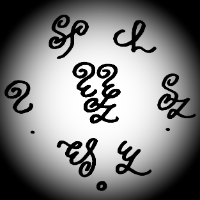-
Posts
47 -
Joined
-
Last visited
-
Days Won
2
mossy84 last won the day on November 23 2024
mossy84 had the most liked content!
About mossy84

Profile Information
-
Gender
Male
Recent Profile Visitors
1,022 profile views
mossy84's Achievements
-
mossy84 started following Fugue using a subject from Fugax Contrapunctus , Sonata allegro exercise , Short Lutheran chorale I made yesterday and 6 others
-
I wrote this piece over the past two months as a sort of challenge to myself and as a demonstration for a few other people on writing pieces out of short themes. I think it's structurally a lot more complicated than typical sonata allegros, but I kind of got carried away (especially in the recapitulation). Honestly, it sounds to me more like the scherzo (third movement) of a four movement sonata rather than the first movement, and I kind of tried following the scherzo form a bit by introducing some new material in the development section.
-
- 1
-

-
I spent quite a while deliberating on what to do here, and I concluded that because the Aug 2 happens in the alto that it would be at least saliently permissible (since I couldn't find a better way to get the G# in the chord). I don't really know how to explain this honestly. It's been long enough that I've forgotten a lot of details about my process when I composed it, and looking back I think it sounds fine (despite violating rules of harmony as you stated) because the alto voice passing tone E creates an imperfect interval to essentially "rescue" the beat. That being said, I didn't really adhere to any style (and setting this chorale to text was actually an afterthought), so I just wrote what I felt like, and at the time I had been experimenting a lot with treating P4, m7, and M9 as consonant intervals (see my short fugue from a while back). I haven't actually had any formal training regarding contrapuntal conventions, so my process is essentially just the product of several years of trial and error (and a lot of listening to Bach and other Renaissance/Baroque composers).
-
I listened through laptop speakers, so this might have influenced my experience considerably. The use of percussion here is very immersive, but I think whatever instrument you doubled on the piano at around 0:29 kind of broke the immersion a bit as it sounded very midi-like. Perhaps increasing the attack time or the sustain level of the instrument would help?
-
Haven't really written anything in quite some time, but I felt like writing this after imagining the melody. The choice of hymn was arbitrary (just something I already knew), but it was really easy to set to music.
-
I kind of got bored of imitating baroque style, so I included some unconventionally resolved sevenths and ninths because they contribute a more open sound; the modulation is a consequence of me trying to make the modulations in this fugue follow that from the opening of the prelude. I wanted this fugue to be short, lightweight, and generally very open sounding (hence why it mostly only uses three voices and is registrated for 4' stops, which sound an octave higher than written). This is in stark contrast to the prelude, which is very dense, long, and convoluted.
-
It's been a few months since i uploaded this prelude, and it finally has a fugue. Not much to say here, other than that I felt like using a few more fourths, sevenths, and ninths than you'd normally see in a three part fugue.
-
Y'all are probably kind of tired of these by now, but last Friday in my history and literature of music class, my professor accidentally played the first two bars of a late Medieval motet by Dunstable (which I later found out to be his Quam Pulchra Es). I wrote this piece during the 50 minute lecture, and it turned out surprisingly well. I only had to make significant adjustments to measures 5 and 6 as I was assembling the audio file (these are almost certainly the most complicated in this piece). Anyway, in the style of late Medieval/early Renaissance music, I tried to use much less chromaticism (which turns out to be much easier to do in a major key).
- 1 reply
-
- 1
-

-
arranged it for choir because i thought it would sound interesting https://drive.google.com/file/d/1hgOJLUVWrGxJwmlK9lqz5SL4dvtyHJMv/view?usp=sharing
-
I wrote this in class the past two days. As I did this in part to practice audiation and the sound of the piece mostly stayed true to my imagination, I was quite pleased with the result. It's not really a chorale, but I was trying to go for that kind of sound (it would have to be transposed up a minor third to be in the appropriate SATB vocal ranges).
-
I realized this a bit later, but yeah for organ writing especially in the pedals, I should have probably just specified when to use an extra octave in the registration (probably by writing forte and piano or something like that). My point of using octaves versus a single note was primarily for dynamic control, so if expressive pedals exist, that would almost certainly be a superior alternative. However, for the manuals, due to occasional crossing of voices, I intended for the organist to play octaves (this crossing is most easily observed at measures 11 and 12). This was mostly a software limitation, though I expect that most organists who tried to play it would choose a quieter registration for the majority of the piece. I have an incomplete fugue here (google drive folder), but to be completely honest this piece works just fine by itself, and I have no idea how any successive movements are going to be able to adequately continue what this piece started. It was never really intended to be this long, but just ended up this way in the process of writing it.
-

Please review my fugue bc I don’t have much time.
mossy84 replied to Sonata_5's topic in Piano Music, Solo Keyboard
I'm most worried about the 1min time limit. I mean, my latest prelude somehow managed to go on for over eight minutes (please go check that out, I spent a ton of time making it), so I'm a bit worried I might get carried away. -

Please review my fugue bc I don’t have much time.
mossy84 replied to Sonata_5's topic in Piano Music, Solo Keyboard
It might be a good idea to familiarize yourself with the basics in counterpoint before attempting a fugue. I strongly recommend that you do species counterpoint exercises. -
It's been a while since I've posted anything here. Anyway, this is supposed to be a prelude (to an as of yet incomplete fugue), though it likely is significant enough to stand alone, unlike my previous preludes. For those who have listened to my previous works, this piece has considerably more classical/early romantic style harmony (as opposed to strictly baroque). Interestingly, I started this piece as an attempt to demonstrate how to properly use (and most importantly exit) long pedal points in the bass. I encourage everyone to try and find the common pattern between all of the pedal points in this piece.
-
This is a revised version of an old fugue that I uploaded last June. It did not get much attention back then, so I hope for feedback regarding the relatively strange counterpoint, especially in the last page.
-
Ivan1791old started following mossy84
-
One day a couple of weeks ago, I found this post on /r/composer where some guy (/u/AHG1) wrote a fugue for organ when he was a teenager. Anyway, I thought the subject was interesting, so I decided to do the fugue my own way. The original composer supported my endeavors as well, so I'm happy that he can finally see what I've come up with. This isn't a particularly unique fugue in my opinion, but any and all comments are of course welcome regardless. https://drive.google.com/drive/u/0/folders/191AToucbt0E9Py-6MqM0y_22IHwqxq6R







